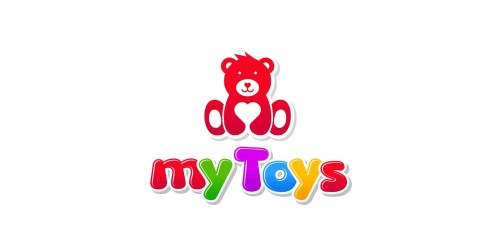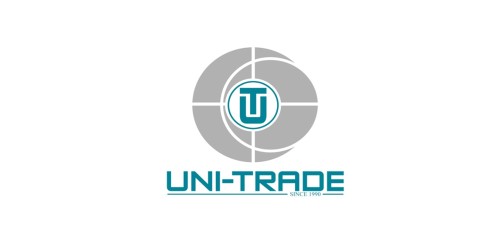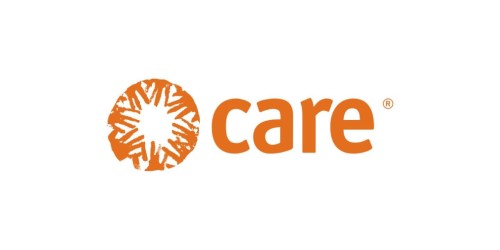
TERMS OF REFERENCE FOR:
Planning and Facilitation of a Capacity Building Program for Grassroots CSOs
on Innovation, Circular Economy, and Climate-Smart Initiatives
Opening date: 05 August 2025 Application deadline: 19 August 2025
CARE Deutschland e.V. Office in Kosovo (in further text: CARE), within its project “Green Horizons - Youth and Community Led Green Transition Initiative in Western Kosovo” (in further text: the Project), co-funded by the European Union - EuropeAid/179419/DD/ACT/XK EU Civil Society Facility and Media Programme for Kosovo – 2023 Lot 2: Local governance, development and activism, Contract no. 2024/461-252 is planning on engaging external Consultant(s) or company/organization: to design and deliver comprehensive capacity building program on innovation, circular economy, sustainability, gender, environmental issues, including a segment on project proposal design.
General Information
Project title: Green Horizons - Youth and Community Led Green Transition Initiative in Western Kosovo
Place(s) of work: Prishtina/Pristina
Anticipated consultant(s): the consultancy team, with diverse and complementary skill sets, fitting the consultancy tasks (see chapter “Qualifications of the Consultant(s) for more details).
Engagement period and duration: from 27 August to 30 September 2025.
About CARE in the Balkans
CARE’s mission in the region of Balkans is to contribute to post-war recovery, socio-economic development and building the societies of equality in Bosnia & Herzegovina, Serbia, Montenegro, Kosovo, Albania and North Macedonia. CARE’s work in the Balkans started in 1993, when it provided humanitarian support to people affected by war. In the late 90-ties, CARE shifted its focus in the region from humanitarian post-war assistance and rehabilitation to socio-economic development, engaging in interventions directed at conflict prevention and peacebuilding, sustainable livelihoods, gender equality and the prevention of gender-based violence.
CARE in the Balkans places the quality of its program at the centre of its mission and has developed a regional strategy with key impact areas of Economic Justice (enhancing inclusive climate-smart economic empowerment and resilient livelihoods), Social Justice (fostering social transformation leading to enhanced social inclusion, reduced discrimination, and the protection and fulfillment of rights for marginalized and vulnerable groups) and Humanitarian Action (in emergencies, CARE will support people affected by natural or man-made disasters, conflict or displacement with lifesaving and urgently required support in line with CARE International’s global strategy). These efforts are guided by cross-cutting priorities, including promoting gender equality, advancing climate justice, strengthening social cohesion, and empowering civil society.
1. Project Information
Basic Project information
The Project Green Horizons - Youth and community led green transition initiative in Western Kosovo is implemented by CARE and two local partners: non-government organizations Emancipimi Civil Ma Ndryshe (EC Ma Ndryshe) from Prizren and Syri i Vizionit (SiV) from Peja/Peć.
The Project, which started on 1st January 2025 and has a duration of 28 months,is implemented in the municipalities of Gjakova/Đakovica, Mitrovica (North and South), Peja/Peć, and Prizren.
The overall objective of the project is to strengthen the resilience and role of youth and civil society of Kosovo in advancing participatory democracy, local development and social inclusion processes. This contributes to strengthening the resilience, role and capacities of civil society and media in advancing participatory democracy and social progress along with the EU integration and approximation agenda in Kosovo. Specifically, the action aims to support gender just, youth and community led local development processes focused on circular economy and green transition in Prizren, Peja/Peć, Gjakovë/Đakovica, and Mitrovica (North and South).
The project aims to tackle youth and civil society actors and engage them in environmental protection, circular economy, and green transition programming and activism, by raising citizen awareness of environmental preservation and effective strategies, and cooperate with local policymakers to increasingly priorities green transition in local development, with a heightened focus on amplifying the voices of youth and women in decision-making processes, thus a sustainable transformation in the local policy landscape will occur, enhancing resilience and fostering participatory democracy in Kosovo.
Target groups of the project: The main Project target groups are young people aged 14-25, local and national public servants and civil society actors (local CSOs’ representatives).
Project Outputs:
- Output 1 will encompass participatory research, focusing on identifying key environmental challenges, stakeholders, and the inclusivity of green transition policies and local processes, particularly in relation to women and youth.
- Output 2 will focus on capacity-building activities around circular economy and green transition, aiming to foster environmental resilience and social activation among youth and CSOs. The School of Activism for Environment aims to enhance local youth engagement by educating students on citizens’ rights, the green transition, circular economy principles, youth activism, and peer-to-peer exchange.
- Output 3 will focus on fostering collaboration with cultural institutions, supporting local youth activism and volunteerism, and encouraging regional exchange to build social cohesion and a sense of shared responsibility for environmental and sustainable development issues.
- Output 4 focuses on ensuring the participation of youth, women and other marginalized groups in decision-making related to green transition. The project will engage youth and civil activists in structured advocacy, including training and round table discussions on local environmental protection and inclusive policy-making processes.
2. Objectives and Tasks of the Consultancy
- Objectives of the Consultancy
The objective of this consultancy is to design and deliver comprehensive capacity building program - trainings for the representatives of approximately 20 pre-selected civil society organizations (CSOs) from the target area, focusing on innovation, circular economy, sustainability, gender, and environmental issues. The training will cover fundamental climate and environmental concepts, principles of economic sustainability, and an introduction to the circular economy and its benefits. It will also address social topics related to climate and environmental protection and include examples of community engagement, gender and environmental awareness, youth involvement in climate action, and strategies for mobilizing community members and stakeholders to support and participate in climate and environmental initiatives. A particular segment of the capacity building will encompass sustainable project design/planning and implementation, which is expected to enable participant CSOs to shape their basic ideas from the applications into feasible proposals with which they will apply for the project grants.
The consultant(s)will facilitate training sessions for two groups with up to 25 CSO representatives and activists (up to 50 in total). The participating CSOs (mainly youth and women led organizations) were shortlisted through the call for applications organized for project financial support to realization of their small-scale climate-smart economic initiatives. Each CSO is expected to nominate 2 to 3 participants with a minimum of 60% female participation. The consultant(s) will ensure active engagement and practical learning throughout the training. Each group will participate in four days of structured training. One session will specifically support CSOs in preparing project applications for small-scale climate-smart or green economic initiatives.
The consultancy will aim to ensure that at least 50% of participating CSO activists demonstrate significantly increased capacity in areas of innovation, climate change, circular economy, and green transition, which will be proved through the consultant(s) analysis of pre and post knowledge test results that will be included in the training program. Following the training, the consultant(s)will also provide two days (one day per group) of support to respond to questions and provide guidance to CSO applicants via email, regarding the final questions concerning drafting and refinement of their project proposals before submitting to CARE.
- Scope of Work
The consultant(s) will be responsible for the planning, delivery, and follow-up of capacity building sessions. The consultant(s) will also prepare all relevant training materials, including presentation slides and handouts, ensuring the content is adapted for the need for grassroots organizations, practical, and gender sensitive and agenda tailored to the specific context. The agenda should cover all of the key thematic areas mentioned above and reflect an inclusive and participatory learning approach.
Prior to the training sessions, the consultant(s) will design and follow through a pre-training evaluation (which should be approved by CARE Project Manager) to assess the existing level of knowledge and capacities among participants. This will provide a baseline for measuring learning outcomes. The consultant(s) will then facilitate two rounds of four-day in-person training sessions in Prishtina—one for each group of up to 25 CSO representatives. The sessions should actively engage participants through a mix of interactive discussions and practical exercises. A key component of the training will support participants in finalizing project applications for small-scale climate-smart or green economic initiatives.
Following the training, the consultant(s) will administer a post-training evaluation to assess changes in participants’ knowledge and skills. This will serve as the basis for evaluating the effectiveness of the training and documenting increased capacity. The consultant(s) is expected to demonstrate that at least 50% of participants show a measurable improvement in understanding and ability to apply concepts related to innovation, climate change, circular economy, and green transition.
To further support the participating CSOs, the consultant(s) will allocate two additional days to respond to questions from participants (via e-mail) as they finalize their project proposals. Mainly the communication regarding the support will be conducted via phone or email. Finally, the consultant(s) will submit a brief report (up to 3 pages, plus annexes) summarizing the entire process. This report should include the finalized training agenda, a summary data on the participants (including gender and organizational affiliation), an overview of the topics covered, evaluation results, tracking of the guidance process for the finalization of the project proposals and evidence of capacity improvements. All presentations and materials used during the training will be submitted as annexes to the final report.
3. Outputs, Deliverables and Methodology
CARE Outputs:
The CARE team will support the consultant(s) by providing a list of selected CSOs and participant details, along with relevant background materials related to the task. The CARE team will coordinate logistics, including venues, equipment, and participant communications regarding the training.
Expected Consultancy deliverables:
The consultant(s) is/are expected to deliver the following:
- Develop a detailed methodology for the task, training materials; presentation, training agenda and other materials related to the task.
- Conduct participatory training sessions for two groups of up to 25 participants over four days, incorporating a focused module on project proposal preparation.
- Conduct pre- and post-training tests/evaluation
- Provide follow-up support for project proposal development
- Submit the Consultancy Report to CARE, with the accompanying documentation.
Orientation consultancy table:
No. | Tasks/Deliverables | Detailed Description | Estimated time allocation |
1 | Develop a detailed Methodology, training materials; presentation, training agenda and other materials for the task | The consultant(s) will be responsible for designing a comprehensive and well-structured methodology, training materials; presentation agenda of the training that clearly outlines the objectives, topics, and flow of the training sessions and other training materials needed for the task | 1 day |
2 | Conduct Pre-Training Evaluation | The consultant(s) will design and implement a pre-training evaluation to assess the baseline knowledge, skills, and capacity levels of the participants related to innovation, circular economy, sustainability, gender, and environmental project development. | To be conducted on the first day of the training for each group. |
3 | Four days training for 1st Group | As specified in the scope of work. | 4 days |
| One day Follow-Up Support for Project Proposal Development | Following the completion of the training sessions, the consultant(s) will provide one day of dedicated follow-up support to assist participants in finalizing their project proposals focused on small-scale climate-smart or green economic initiatives. | 1 day |
4 | Four days training for 2nd Group | As specified in the scope of work. | 4 days |
5 | One day Follow-Up Support for Project Proposal Development | Following the completion of the training sessions, the consultant(s) will provide one day of dedicated follow-up support to assist participants in finalizing their project proposals focused on small-scale climate-smart or green economic initiatives. | 1 days |
6 | Post-Training Evaluation | The consultant(s) will design and administer a post-training evaluation to measure the effectiveness of the training sessions and assess the extent to which participants have increased their knowledge, skills, and capacities related to innovation, circular economy, sustainability, gender, and environmental project development. | To be conducted on the last day of the training for each group. |
7 | Consultancy Report | The consultant(s) will prepare a concise report documenting the entire capacity building process, including the design, delivery, and evaluation of the training sessions. | 1 day |
Methodology:
The consultant(s) is expected to apply a participatory, inclusive and practice-oriented methodology for the trainings. The training materials, presentations and other materials should be designed to reflect the specific needs and context of the participating CSOs (youth and women led organizations). The training content should ensure gender-sensitive and locally relevant content, which should be informed by the project led research “Green and Just Transitioning”, which will be provided by CARE along with other background documentation. A pre-training assessment will be conducted to establish a baseline of participants’ knowledge and skills, followed by a post-training evaluation to measure learning outcomes—aiming for at least 50% of participants to demonstrate a significant increase in capacity. The consultant(s) will also provide two additional days of support after the training, responding to final questions as CSOs finalize their project proposals.
The Consultancy Report should contain annexes with all materials, tools, data, analysis/evaluation produced during the consultancy. Along with the report, the consultant(s) will submit to CARE any original outputs, including original pre-post tests filled by the participants.
4. Process & Timeline
The consultancy is limited to 12 full consultancy days, over the period 27 August – 30 September 2025, according to the following timetable:
Action Responsible Deadline
- Initial meeting with CARE team CARE, Consultant(s) 27 August 2025
- Conduct training for 1st Group Consultant(s) 2-5 September 2025
- One day Follow-Up Support Consultant(s) 8 September 2025
- Conduct training for 2nd Group Consultant(s) 8-11 September 2025
- One day Follow-Up Support Consultant(s) 12 September 2025
- Submission of Consultancy Report Consultant(s) 15 September 2025
5. Payment Schedule
The payment of 100% of the contracted amount will be fully executed upon the delivery of all consultancy tasks and the approval of the Consultancy Report (with supporting documents) by the Project Manager. The detailed payment schedule will be outlined in the Consultancy/Service Contract. The Payment will be carried out in line with the necessary documentation as per CARE’s procedures including the administrative requirements (detailed methodology, training material; presentation consultancy report, evaluation forms and other materials over the task, including the timesheets for the consultancy etc). CARE will provide guidance for these administrative procedures.
6. Required Qualifications of the Consultant(s)
CARE invites individual consultant(s), consultant (s) teams, companies’ and/or NGOs, agencies, experienced on environmental issues and research reports to the subject, to submit their bids and present their relevant expertise and experience. The general requirements for Consultant(s) expertise are:
- Advanced degree (master’s or higher) in Environmental Science, Sustainable Development, Economics, Gender Studies, Social Sciences, or related fields.
- Minimum of 5 years of proven professional experience in areas related to innovation, circular economy, sustainability, gender mainstreaming, and environmental project development.
- Minimum of 5 years’ experience working with civil society organizations (CSOs), ideally on citizens’ activation (community actions and similar), within Kosovo and/or EU contexts.
- Experience in facilitating project proposal development, particularly in climate-smart, green, or circular economy projects.
- Ability to tailor training content and delivery of participatory training sessions to different audience levels. Excellent training skills.
7. Application Process
The Consultancy bid/application should consist of the following:
- Portfolio including the Consultant(s) CV(s) (preferably in EU Format), with detailed information relevant to the required qualifications including two relevant references from similar consultancies conducted previously. Particular attention should be paid to provide references for environmental/green transition project design and for previous work with civil society actors.
- Proposed methodology for the consultancy.
- Bid – financial offer: The Consultant(s) shall suggest a gross daily fee/rate in EUR per consultancy and an excluded VAT daily fee/rate in EUR for the companies. Transportation, food and accommodation costs should be included in the daily rate. There is no standard format for the bid.
- Copy of IDs for consultant(s), business registration certificate VAT etc. (if any) for the companies and/or NGOs.
THE APPLICATION BID SHOULD BE IN ENGLISH!
Interested candidates are invited to apply to the e-mail: [email protected] . Closing date for applications is 19.08.2025.
For any additional information concerning the application, you may contact: [email protected] no later than 11th of August 2025.
8. Criteria for Selection of Best Offer
CARE will assess both technical and a financial proposal submitted by applicants. The applications received will be evaluated based on the cumulative analysis methodology: technical and quality evaluation weigh 70% and financial criteria weigh 30%.
CARE retains the right not to select any of the candidates, should the quality of applications be of insufficient standard for the project.


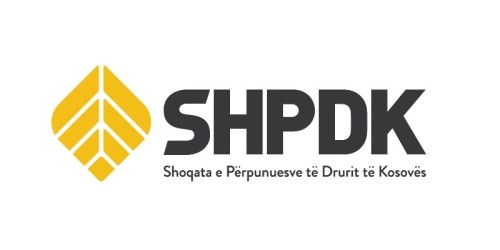
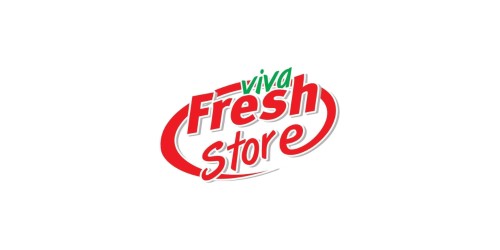
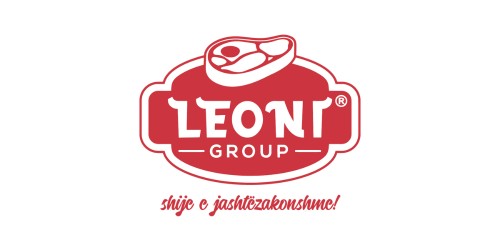
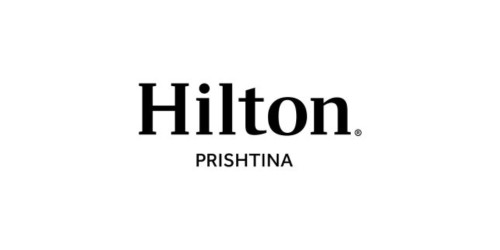


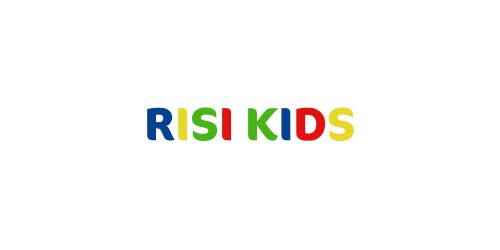
-thumbnail.jpg)
